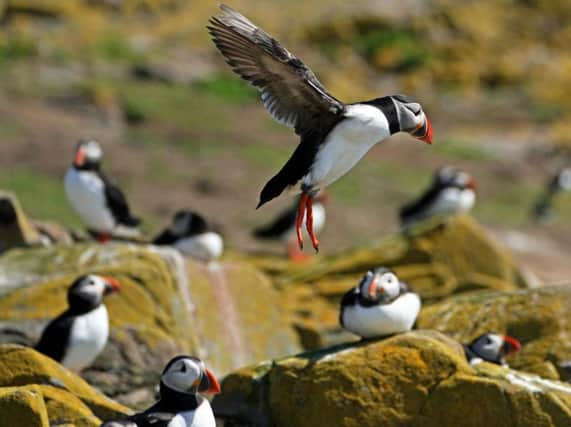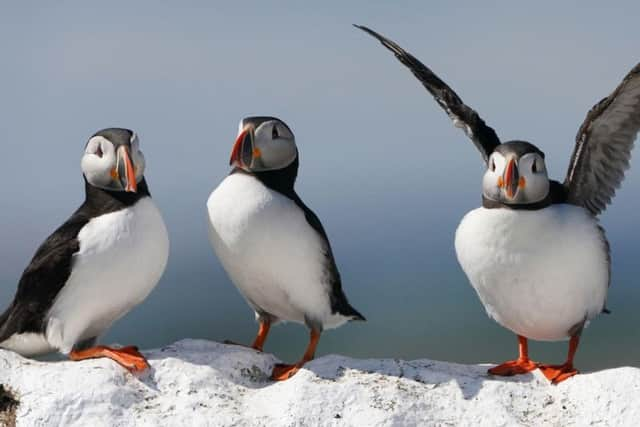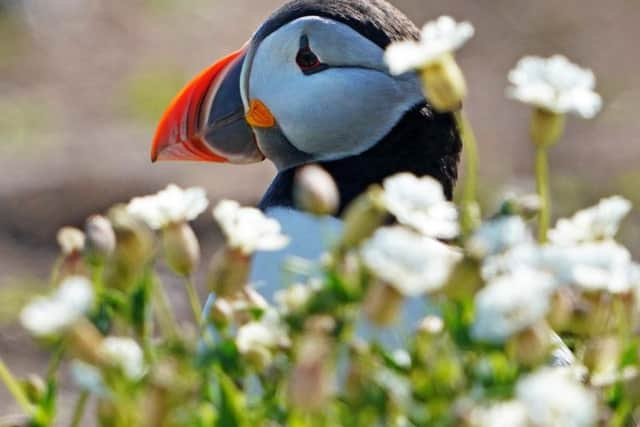Puffins to be closely monitored as National Trust reveals climate change fears


The charity, which has carried out the survey on the Farne Islands for 50 years, says it will now monitor the charismatic seabirds more closely amid global declines in numbers which led to it being listed as vulnerable to extinction.
There are concerns about the reduction in the quality and abundance of its preferred food source, the sandeel, and more frequent storms, as a result of climate change.


Advertisement
Hide AdAdvertisement
Hide AdThe Trust, which looks after the islands off the coast of Northumberland, said Atlantic puffins have traditionally done well there due work by rangers, a lack of predators, suitable nesting areas, and increasing protection of the surrounding marine areas.
Results from the 2018 survey revealed stable puffin numbers, with an increase of around 9% since 2013 to 43,956 pairs of birds.
But more widely, puffins are in decline, with large drops in more northerly populations due to a shortage of sandeels, and annual monitoring on the Farnes will help reveal any downward population among the birds.
Tom Hendry, one of the 11-strong National Trust ranger team on the Farne Islands, said: "Sandeel populations in the North Sea are being affected by two things: overfishing and climate change - with rising sea temperatures.


Advertisement
Hide AdAdvertisement
Hide Ad"These factors are driving the good quality plankton which sandeels feed on further north, resulting in a poorer quality of plankton in this area for sandeels to feed upon.
"The risk is that these pressures together with overfishing will eventually 'squeeze' the Farnes population, with more and more birds having to travel further for rich feeding grounds.
"This means they're more vulnerable to the increasing frequency of winter storms, whilst out at sea."
He said it was vital the "clowns of the sea" were monitored closely as there have been suggestions that in 30 to 50 years' time there may be no more puffins on the Farnes.
Advertisement
Hide AdAdvertisement
Hide AdThe team are calling for annual monitoring of puffins at other sites to get a better picture of the seabirds and the factors that affect them.
Dr Chris Redfern, emeritus professor in the School of Natural and Environmental Sciences at Newcastle University, said: "We don't know enough yet about the sandeel population around the Farnes.
"It is therefore very prudent to monitor closely how seabird populations change from year to year to see if trends emerge.
"That way we have a chance of finding ways to mitigate against any negative effects."